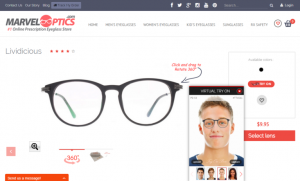Data precedes DAA introduction of “AppChoices” consumer tool.

The Digital Advertising Alliance (DAA), a consortium of online advertising trade groups, commissioned Zogby Analytics to survey mobile users about their attitudes toward mobile advertising. Zogby polled 1,015 adults, mostly about in-app advertising and related issues.
At the highest level, the study’s findings can be grouped into two categories:
- Preference for ad-supported apps vs. other models (i.e., paid, freemium)
- Interest in tools that provide some level of consumer visibility and control over the ads served

As with past surveys about consumer services and content, respondents said they prefer ad-supported models to paying for apps — as would be expected. They also expressed interest in both “relevant” ads and in “opt out” tools for mobile.
Here are a few of the headlines (verbatim from the study):
- Of respondents who downloaded apps, 58 percent preferred free, ad-supported apps to those that required some form of payment (either at download or in-app).
- Only 8 percent of users said they would download all of their free apps again if they were required to pay for them; 46 percent said they wouldn’t download any of their free apps again if they were forced to pay.
- By a margin of nearly five-to-one, Americans who expressed an opinion preferred seeing mobile ads that were relevant to their specific interests.
- 71 percent of respondents agreed that tools that provide them transparency and choice regarding relevant ads and data collection should be available wherever and however they access the Internet.

This study lays the PR groundwork for the DAA’s launch of an “AdChoices” program for mobile. AdChoices is the behavioral targeting logo and opt-out functionality promoted by the DAA trade associations as “self-regulation.”
The trade consortium said that it will soon launch “AppChoices” to give people more visibility and control over mobile advertising:
[AppChoices will be] a downloadable tool that allows users to manage their relevant advertising preferences in mobile apps. The tool is built on the same robust principles that support DAA’s groundbreaking Web-based program, and provides functionality similar to that of the DAA Icon experience which is served globally at a rate of a trillion times per month.
In the survey release the DAA celebrates AdChoices as a great consumer success. However the opposite is actually true. It has essentially failed to educate the public or get people to engage with online ad preferences.
The overwhelming majority of consumers have little or no awareness of what AdChoices means nor have they used the tools behind it. I haven’t been briefed on AppChoices. It’s possible that will be better conceived and executed than AdChoices but I’m skeptical.
This survey is undoubtedly part of a prophylactic effort to head off potential mobile regulation by the FTC, state legislatures or other entities such as state Attorneys General. Mobile data, especially when it comes to location data and profiling, are extremely valuable to marketers.

Mobile data collection, audience profiling and targeting can all be done in a privacy compliant way. However “the industry” has been reluctant to educate the public and has ceded much of that education to the operating systems (Apple in particular). Indeed, many mobile ad platforms and marketing companies have taken a kind of “don’t ask don’t tell” position.
That silence has become increasingly problematic for marketers as the tone of press coverage about mobile advertising, location and data collection becomes increasingly skeptical or even conspiratorial.
The idea of giving consumers choice and visibility and some ability to have input into the ads they see on their mobile devices is a good one. But I’m afraid that a downloadable AppChoices app isn’t going to have much of an impact — it may even be counterproductive.
Marketing Land – Internet Marketing News, Strategies & Tips
(367)
Report Post





